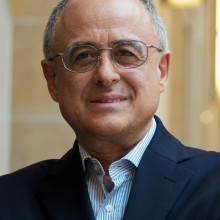Arrays and Cooperative Transceivers for Wireless Localization and Communications
The increased demand for high data-rate and mobile wireless services, and the desire for more reliable coverage and connectivity dictate better understanding and modeling of the propagation channels, and the exploitation of various possible mechanisms for bandwidth-efficient signal separation and/or diversity through the design of multi-element antennas (arrays) at the receiver and/or transmitter. Arrays also provide the opportunity to localize mobiles for emergency or location-based services and/or for monitoring. Following general introductions to this topic, examples of statistical and ray-based channel models that are useful for wireless communications and wireless localization in urban settings are presented. This is followed by an overview of distributed multiple-antenna systems that are variously known as collaborative, cooperative or mesh systems, which use fixed or mobile relays for providing enhanced connectivity and transmission diversity.

Mostafa Kaveh
Associate Dean for Research and Planning for the Institute of Technology, University of Minnesota on February 29, 2008 at 12:30 PM in Engineering Building II, Room 1230
M. Kaveh received the B.S. and Ph.D. degrees from Purdue University in 1969 and 1974, respectively, and his M.S. degree from the University of California at Berkeley in 1970. He has been at the University of Minnesota since 1975, where he served as the Head of the Electrical and Computer Engineering Department 1990-2005, and currently holds the Centennial Chair in ECE and serves as the Associate Dean for Research and Planning for the Institute of technology, a combined college of engineering, physical sciences and mathematics. Kavehís industrial experience including election as a fellow of the IEEE and as the recipient of the IEEE Signal Processing Society 2000 Society Award. He currently serves as the President-Elect of the IEEE Signal Processing Society.
The Department of Electrical and Computer Engineering hosts a regularly scheduled seminar series with preeminent and leading reseachers in the US and the world, to help promote North Carolina as a center of innovation and knowledge and to ensure safeguarding its place of leading research.
